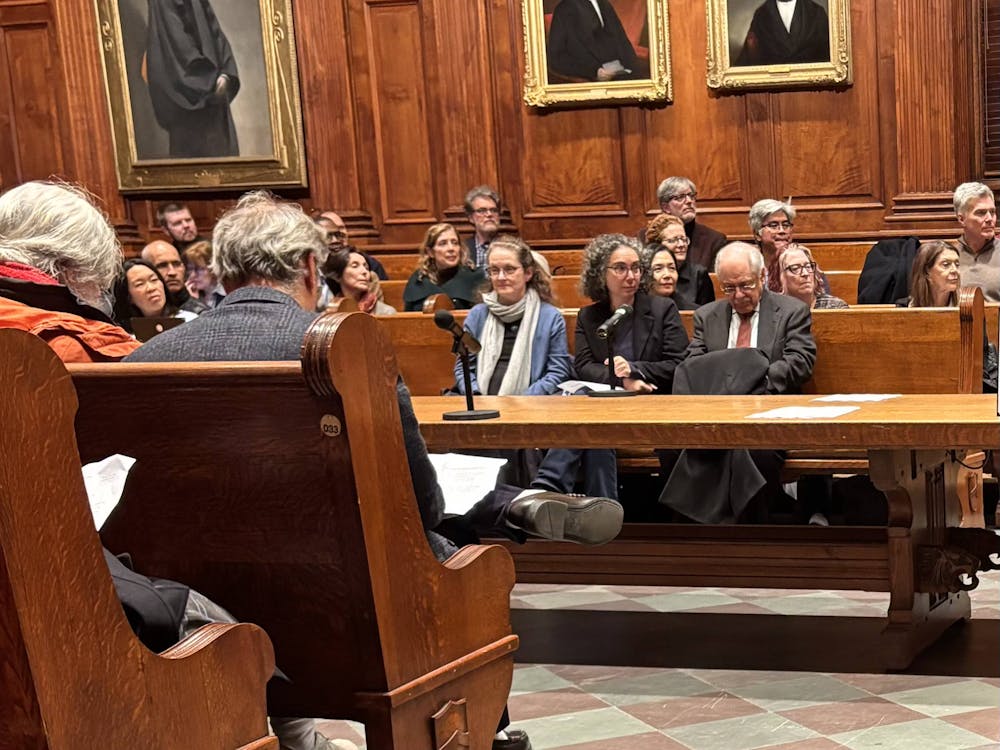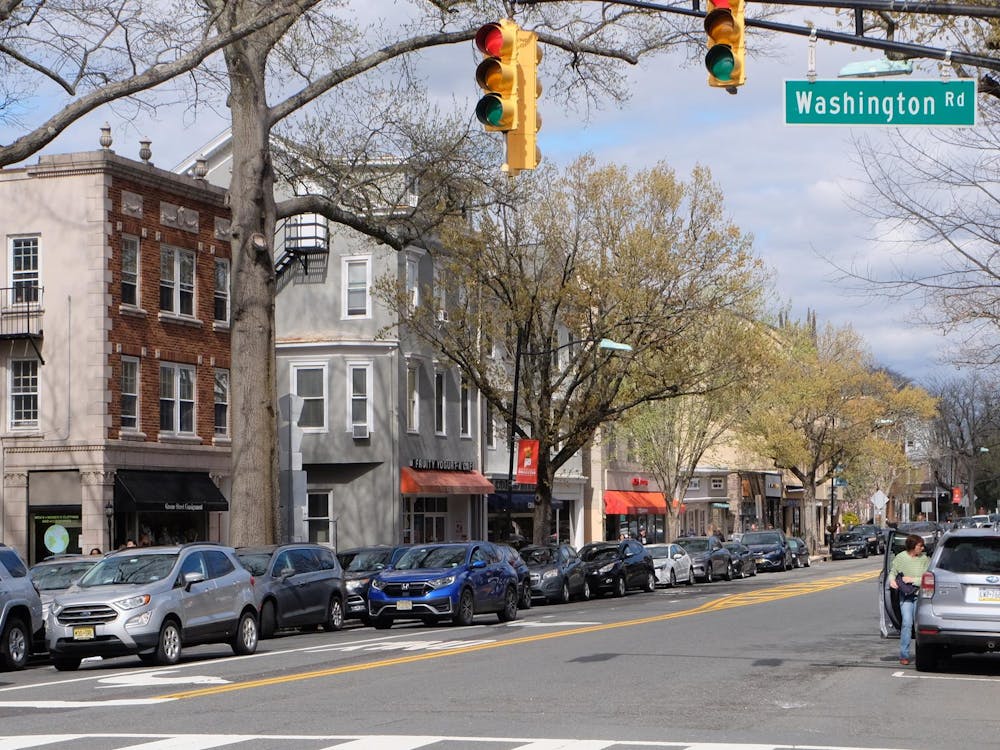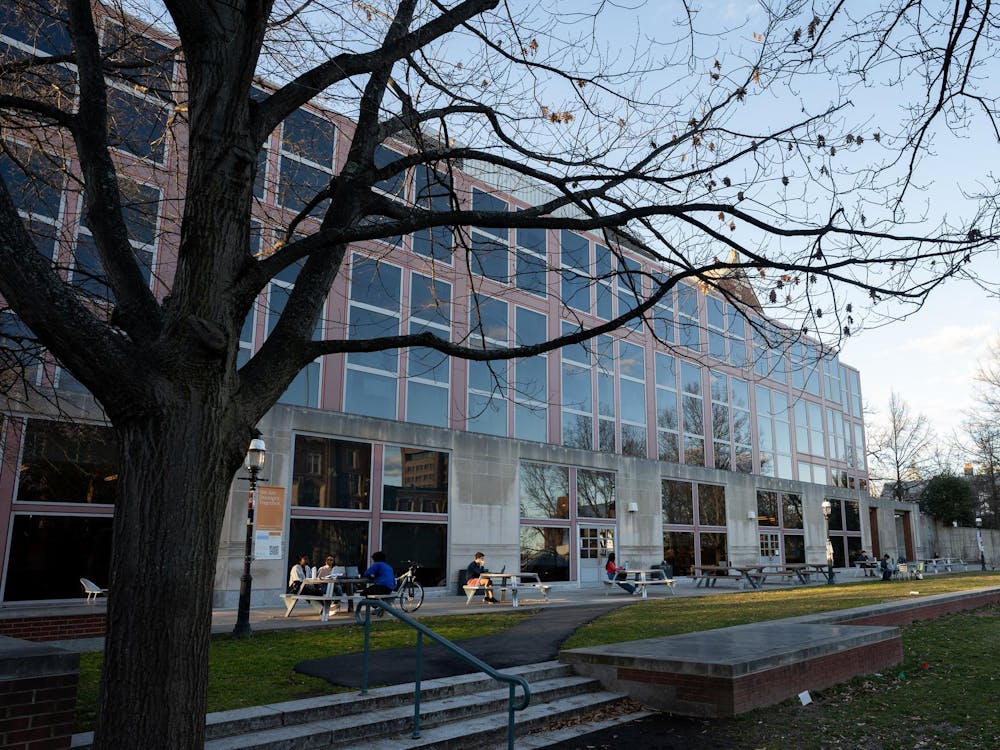Earlier this month, leadership of the American Civil Liberties Union changed hands, as Anthony Romero '87 took over the position of executive director from Ira Glasser, who is retiring after 23 years as the organization's chief.
Romero is both the first Latino and the first gay man to head the ACLU.
"It's just fantastic," Romero, 36, said of his new position as the chief executive officer of the nation's best-known civil rights advocacy group. He said he still finds it incredible that he is paid to do the work he is so passionate about: Fighting to protect civil rights and liberties.
With a strong mark left by Glasser, Romero feels confident about taking what has been done and using it to build an even stronger future.
"My predecessor did outstanding work," he said. "You stand on the shoulders of the people before you and you're able to look further into the future."
Romero's goals for the ACLU take into consideration that future as well as the present.
"Balancing between the present and the future and doing both parts concurrently," he noted, is one of the toughest parts of his job. "I wanted to make this the organization for the future."
At the same time, Romero explained, the battles of the past and present must not be forgotten or ignored. "We have come to fight the long hard fought gains of the present," he said.
Defending civil liberties today includes many non-traditional aspects of civil rights, like monitoring privacy in new technology. But Romero also stresses that the more traditional issues of civil liberties like race are not only issues of the past.
"These questions are affecting us now as much as they ever did in the past," he said.
This is part of the importance that Romero finds in his appointment to director as a gay Latino — two characteristics that alone would make him a minority. Questions of race and sexual orientation are not dead issues, he said, but central ones. "They're not part of the periphery," he added.
Romero has also found that some members of the younger generation are looking to him as a role model, a position he is happy to accept, because it shows that being a minority does not mean that achieving dreams is out of reach. "That's an important lesson," he said.

Part of Romero's focus for the ACLU's future is on membership. He aims to galvanize current members, to make more effective use of them in defending civil liberties and to get younger and more diverse members.
"It is everyone's civil liberties organization," he explained.
Recruiting youn-ger members, Rom-ero acknowledged, also involves making youth more aware of the opportunities for service that are available to them. For example, most students do not know that a student ACLU membership is only five dollars, he noted.
During his time at the University, Romero said he knew very little of these opportunities.
"When I was an undergraduate, I didn't know anyone who was doing the work that I'm doing now."
Invoking the University's motto — In the Nation's Service — Romero highlights its long-standing tradition of service. "There are many careers that Princeton alumni have undertaken that have given back to the community," he said, noting that there are alternatives to standard Princeton careers as lawyers or investment bankers — and that money is everything.
"Princeton can prepare you to really make a contribution to the public service," he said.
Romero's passion for civil rights and liberties drove him in the courses and activities he did as an undergraduate at the University and at law school.
Growing up in a poor, crime-filled neighborhood in the Bronx with his parents Demetrio and Coralie — both Puerto Rican immigrants — and his sister, Romero experienced first-hand the need for the kind of work he does. He attended public high school just outside Little Falls, N.J., and was awarded a Cane Scholarship by the University.
Romero lived in Mathey College for two years and joined Campus Club for the next two. His interest in public and international policy led him to major in the Wilson School and concentrate in Latin American studies. He wrote his senior thesis on migration to the United States from Colombia, the Dominican Republic and Puerto Rico, and the factors affecting each.
"I was very interested in international developing issues," Romero recalled. Among the principle activities in which he participated were the Princeton International Developing Organization — a group trying to raise money for developing projects in other countries — and Accion Puertorriquena, a Puerto Rican students organization.
After completing his undergraduate work at the University, Romero went on to law school at Stanford University. "I wanted to understand the politics and dynamics [of the west coast]," he explained, adding that he was also drawn by Stanford's focus on constitutional law.
In advising the younger generation on overcoming the many challenges they will face, the most important thing, according to Romero, is having faith and confidence in one's abilities and contributions.
"Always believe in yourself. That's the most important part," he noted. "If you lose faith in yourself, then you lose trust in yourself."
Though he has only been the ACLU's chief since Sept. 4, Romero is already facing several challenges. Most notably, he must deal with the aftermath of the attack on the World Trade Center and its consequences on civil liberties across the country.
"It's reminded me of the importance of standing for civil liberties and civil rights in times of international crisis," Romero explained. Recalling past incidents in which international turmoil resulted in violations of certain groups' civil rights like the Red Scare of the 1950s and the treatment of Japanese citizens after the bombing of Pearl Harbor — Romero emphasized the importance of taking care to preserve these rights now.
In a statement issued last week, Romero said, "As we respond to this national crisis — and respond we must — we must not take for granted our basic freedoms, including the steadfast commitment to civil liberties and tolerance of others. Nor should we be willing to sacrifice these fundamental values, nor look the other way as they are undermined.
"For if we do, the enemy will have won," he concluded.
Romero pointed out the importance of taking these new safety precautions with due process and consideration. "That is clearly where we must be."
Like many of his battles in the past, Romero knows that this will not be an easy one. He knows, also, that has never stopped him before.







